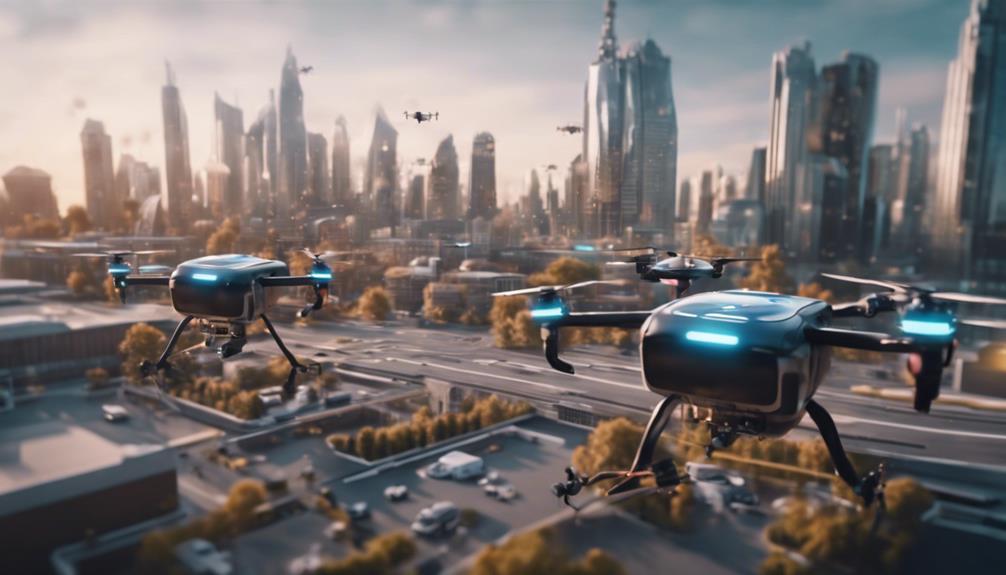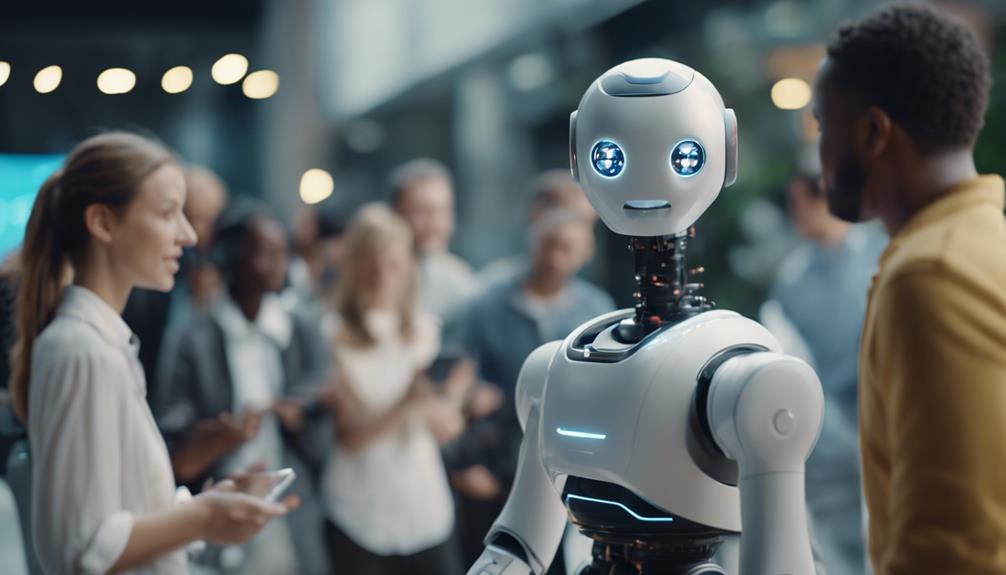Artificial Intelligence in Tabuk
AI Applications in Various Industries in Tabuk

Evolution of Artificial Intelligence Techniques
How have artificial intelligence methods evolved over time to shape modern technological advancements?The journey of AI methods began with symbolic approaches and problem-solving techniques in the 1950s, laying the foundation for the development of advanced algorithms. DARPA's involvement in street mapping projects during the 1970s marked significant progress in applying AI practically. Over the years, AI has shifted from basic problem-solving to more complex tasks like pattern recognition, driven by continuous research and technological innovations.One of the key advancements in AI methods has been the rise of machine learning algorithms, particularly neural networks. This evolution has led to the emergence of deep learning, a subset of machine learning that focuses on training data to enhance decision-making processes. Additionally, AI methods now include computer vision for image recognition and unsupervised learning for identifying patterns without labeled data. The fusion of these methods has propelled AI to new heights, enabling it to tackle a wide array of tasks efficiently and effectively.Impact of AI on Society in Tabuk

Ethical Considerations in Artificial Intelligence
Considering the intricate interplay between technology and ethics, examining the ethical implications of artificial intelligence (AI) is paramount in shaping a responsible and equitable future. Ethical considerations in AI encompass a range of critical issues. Bias in algorithms is a significant concern, as it can lead to discriminatory outcomes in decision-making processes.Transparency in AI systems is vital to understand how decisions are reached and guarantee accountability for ethical standards. Data privacy is another key aspect, with worries about the security and consent surrounding the collection and utilization of personal data in AI applications.Fairness and equity in AI implementation involve tackling societal biases and ensuring just outcomes for all individuals affected by AI technologies. To address these concerns, ethical AI frameworks and guidelines are being developed to promote responsible AI practices and mitigate potential harm to society and individuals.It is imperative to navigate these challenges thoughtfully to foster a future where AI operates ethically and equitably.Future of AI and Superintelligence

Frequently Asked Questions
What Are 4 Types of Artificial Intelligence?
The four types of artificial intelligence include Weak AI, focused on specific tasks; Strong AI or artificial general intelligence (AGI), aiming for human-like cognitive abilities; Artificial super intelligence (ASI) surpassing human intelligence; and Machine learning enabling systems to learn autonomously.How Is AI Being Used Today?
AI is revolutionizing various sectors like healthcare, finance, transportation, customer service, and agriculture. It aids in diagnosing diseases, fraud detection, autonomous vehicle navigation, chatbots for customer service, and precision farming. AI applications continue to enhance efficiency and innovation across industries.Can You Explain Artificial Intelligence?
Artificial intelligence demonstrates the emulation of human cognitive processes by machines. It encompasses tasks like problem-solving, learning from data, and applying knowledge to automate functions. AI's evolution and significance span various sectors, enhancing efficiency and innovation.What Is 1 Example of Artificial Intelligence?
One prominent example of advanced technology is IBM's Watson, known for utilizing natural language processing and machine learning to analyze data and offer valuable insights. This cutting-edge system showcases the power of innovation in data analysis and decision-making processes.Tabuk Artificial Intelligence: Pioneering the Future of Technology
Tabuk Artificial Intelligence, a cutting-edge technology company, is at the forefront of revolutionizing the way businesses operate. With its innovative approach to artificial intelligence (AI), Tabuk is leading the charge in developing advanced AI systems that can enhance productivity, improve decision-making processes, and drive innovation across various industries.
The Power of Tabuk AI
Tabuk AI utilizes state-of-the-art machine learning algorithms to analyze data, identify patterns, and make predictions, enabling organizations to automate repetitive tasks, optimize workflows, and gain valuable insights from their data. The company’s AI solutions are designed to empower businesses to streamline operations, reduce costs, and gain a competitive edge in today’s fast-paced digital economy.
The Impact of Tabuk AI
By harnessing the power of Tabuk AI, businesses can unlock new opportunities for growth and success. From intelligent automation and predictive analytics to personalized customer experiences and targeted marketing strategies, Tabuk AI is revolutionizing how businesses leverage data to drive strategic decision-making and achieve sustainable business outcomes.
The Future of Tabuk AI
As the demand for AI continues to grow, Tabuk is committed to pushing the boundaries of what is possible with AI technology. The company’s team of experts is dedicated to staying ahead of the curve, constantly innovating and refining its AI solutions to meet the evolving needs of businesses in the digital age.
In conclusion, Tabuk Artificial Intelligence is transforming the way businesses operate and thrive in an increasingly competitive landscape. With its advanced AI capabilities and commitment to innovation, Tabuk is paving the way for the future of technology and empowering businesses to achieve their full potential in the digital era.
Other Services in Tabuk
Tabuk, officially the City of Tabuk (Ilocano: Siudad ti Tabuk; Filipino: Lungsod ng Tabuk), is a 5th class component city and capital of the province of Kalinga, Philippines. According to the 2020 census, it has a population of 121,033 people.
